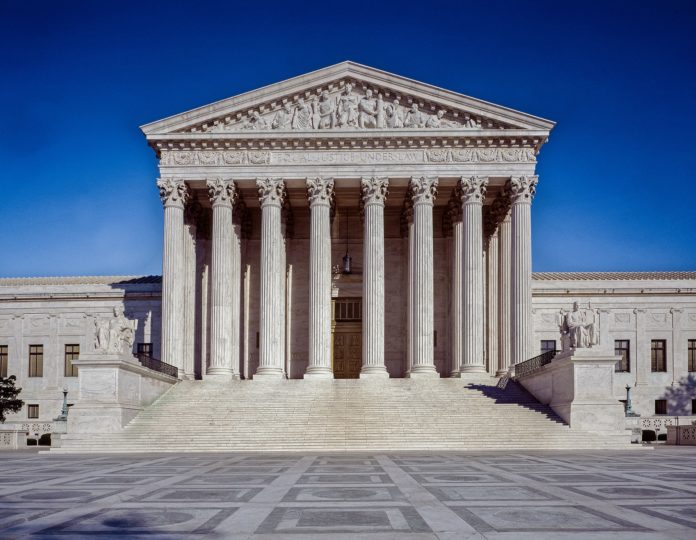
Editor’s Note: Law Week Colorado edits court opinion summaries for style and, when necessary, length.
OK Charter School Board v. Drummond
In a single-sentence, per curiam opinion, the U.S. Supreme Court affirmed a lower court’s ruling rejecting a bid from an Oklahoma virtual charter school to be the country’s first state-funded religious charter school.
The court wrote that the judgment was affirmed by an equally divided court. The opinion didn’t state what the split was or who voted but did note that Justice Amy Coney Barrett didn’t take part in the consideration or decision of the cases.
The Pennsylvania Department of Transportation awarded Stamatios Kousisis and Alpha Painting and Construction Co. two contracts for painting projects in Philadelphia. Federal regulations required contract awardees to subcontract a portion of every contract to a disadvantaged business enterprise. So as part of the bidding process, Kousisis falsely represented that Alpha would obtain its paint supplies from Markias, Inc., a prequalified disadvantaged business. This was a lie.
Unbeknownst to PennDOT, Kousisis arranged for Markias to function as a mere pass-through entity. As a pass-through, Markias didn’t provide any paint supplies. To the contrary, its only role was that of a paper pusher, funneling checks and invoices to and from Alpha’s actual suppliers.
Not only did this arrangement contradict Kousisis’s prior representations, it also violated the requirement that disadvantaged businesses perform a commercially useful function.
In the end, however, Alpha performed the painting projects to PennDOT’s satisfaction and pocketed more than $20 million in gross profit, according to court documents.
The government charged Alpha and Kousisis with wire fraud and conspiracy to commit the same. The charges were premised on the fraudulent-inducement theory — in other words, that petitioners had induced PennDOT to award them the painting contracts under materially false pretenses. After a jury convicted Alpha and Kousisis of wire fraud, they moved for acquittal. In their view, despite the lack of disadvantaged-business participation, PennDOT had received the full economic benefit of its bargain. So, petitioners contended, the government couldn’t prove that they had schemed to defraud PennDOT of money or property as Section 1343 requires.
The 3rd Circuit Court of Appeals rejected this argument, deepening the division over the validity of a federal fraud conviction when the defendant didn’t seek to cause the victim net pecuniary loss.
The U.S. Supreme Court held that a defendant who induces a victim to enter into a transaction under materially false pretenses may be convicted of federal fraud even if the defendant didn’t seek to cause the victim economic loss.
The high court affirmed the lower court’s ruling.
Justice Amy Coney Barrett delivered the opinion of the court, in which Chief Justice John Roberts Jr. and Justices Clarence Thomas, Samuel Alito Jr., Elena Kagan, Brett Kavanaugh and Ketanji Brown Jackson joined. Thomas filed a concurring opinion. Justice Neil Gorsuch filed an opinion concurring in part and concurring in the judgment. Justice Sonia Sotomayor filed an opinion concurring in the judgment.

